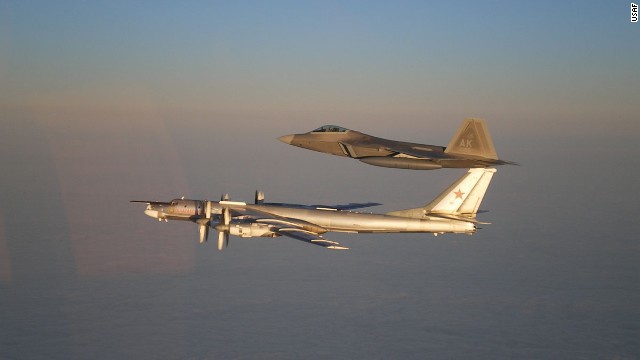NATO jets scrambled more than 400 times this year for Russian intercepts

(CNN) -- NATO has scrambled fighter jets more than 400 times this year to intercept Russian military flights close to alliance members' airspace in Europe, the alliance's secretary general said this week.
That's a 50% increase in
Russian air activity over last year and the kind of activity that
harkens back to the days of the Cold War, NATO Secretary General Jens
Stoltenberg said during a visit to NATO member Estonia on Thursday.
"This pattern is risky
and unjustified. So NATO remains vigilant. We are here. And we are ready
to defend all allies against any threat," he said at Amari Airbase in
Estonia, where U.S., German and Estonian troops were gathered.
Stoltenberg said few of
the Russian flights had actually violated the airspace of NATO nations,
but he said the way the Russian planes operate threatens civilian
aviation in the region.
"They are not filing
their air flight plans. They are not turning on the transponders. And
they are not communicating with the civilian air traffic control," he
said.
"We are calling on Russia
to conduct their military air activities in a responsible way and
respecting international norms for this kind of air activity,"
Stoltenberg said.
In a report earlier this
month, the European Leadership Network listed more than 40 "close
military encounters between Russia and the West" that took place in the
eight months from March to October of this year.
Three of those, including
a near collision between a Russian military plane and a Swedish
passenger aircraft carrying 132 people, were classified as "high-risk"
incidents that could have led to direct military confrontation between
Russia and the West, according to the report, titled "Dangerous Brinksmanship."
Russia also has said it will expand its military flights,
with Defense Minister Sergey Shoigu saying this month that Russian
military aircraft would be flying along U.S. coasts and even into the
Gulf of Mexico.
"We have to maintain
(Russia's) military presence in the western Atlantic and eastern
Pacific, as well as the Caribbean and the Gulf of Mexico," including
sending bombers "as part of the drills," Shoigu said.
Stoltenberg, continuing
his Baltic trip in NATO ally Lithuania on Friday, said the alliance is
not standing idle as Russian activity increases.
Visiting the Karmelava
Airspace Control Center, he said NATO's air policing mission in the
region "has been significantly strengthened in the recent months."
"And we have also
deployed more ships in the Baltic Sea. And since the start of this year,
NATO allies have conducted over 200 exercises," Stoltenberg said
Subscribe to:
Post Comments
(
Atom
)

No comments :
Post a Comment